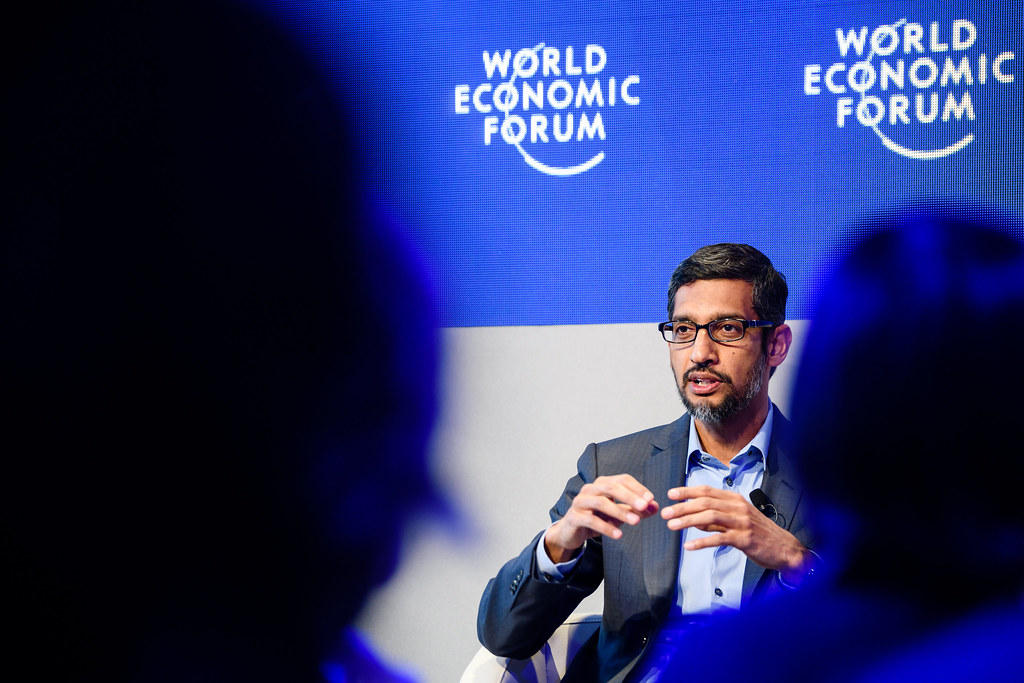
Google CEO Sundar Pichai said he is “very excited” about supplying OpenAI — Google’s biggest AI competitor — with cloud computing resources to train and serve OpenAI’s AI models, following a recently established partnership.
“Google Cloud is an open platform, and we have a strong history of supporting great companies, startups, AI labs, etc. So super excited about our partnership there on the cloud side, and we look forward to investing more in that relationship and growing that,” Pichai said during Google’s Q2 earnings call on Wednesday.
Navigating a Complex Relationship with AI Rival
Pichai’s comments came as analysts questioned Google executives about the impact of AI on their core search business and the rationale behind a $10 billion increase in capital expenditures this year aimed at closing the AI gap. Roughly two and a half years after ChatGPT’s launch, Google is aggressively developing AI models and products to compete directly with OpenAI.
The deal with OpenAI makes Google Cloud a major player in AI infrastructure, but also presents risks: OpenAI may use Google’s cloud technology and chips to disrupt Google’s own search dominance.
OpenAI recently added Google Cloud to its roster of cloud providers, joining Microsoft and Oracle. Reports from June indicated that OpenAI was considering Google Cloud for additional computational power.
Google Cloud’s AI-Driven Revenue Growth
Google Cloud revenue jumped to $13.6 billion in Q2 2025, up from $10.3 billion a year earlier. A significant portion of this growth is attributed to AI companies using Google’s cloud platform. Though smaller than Google Search, Google Cloud is becoming a rising force in the AI era.
Several leading AI labs, including Anthropic, Safe Superintelligence, World Labs, and now OpenAI, rely on Google Cloud. Pichai highlighted Google’s edge thanks to its large supply of Nvidia GPUs and proprietary TPU chips.
OpenAI faces constraints on Nvidia GPUs, essential for training and serving AI models to hundreds of millions of users. These limitations have caused tension with Microsoft, OpenAI’s largest cloud partner, pushing OpenAI to diversify its cloud providers.
Google Cloud’s vast infrastructure and hardware resources make it a strategic partner for OpenAI as the startup seeks to scale.
Google reported promising user growth for its AI tools: Gemini now has 450 million monthly active users, while AI Overviews reach 2 billion monthly users. However, the business impact of these products and how much search traffic they divert from Google Search remains uncertain.
While Pichai publicly expresses excitement over partnering with OpenAI, the company represents Google Search’s greatest competitive threat. The situation mirrors Google’s historic relationship with Yahoo decades ago, when Google used Yahoo’s platform as a launchpad to become the dominant internet gateway.
How enduring this Google-OpenAI partnership will be remains unclear.
What The Author Thinks
This partnership highlights the delicate balance tech giants face in the AI era—collaborating with rivals to gain short-term advantage while risking long-term competition. Google’s willingness to power OpenAI’s AI models with its cloud infrastructure signals both confidence in its own innovations and acknowledgment of the fast-moving AI landscape. However, putting such powerful tools in the hands of a key competitor is a strategic gamble that could reshape the future of search and AI dominance.
Featured image credit: World Economic Forum via Flickr
For more stories like it, click the +Follow button at the top of this page to follow us.
